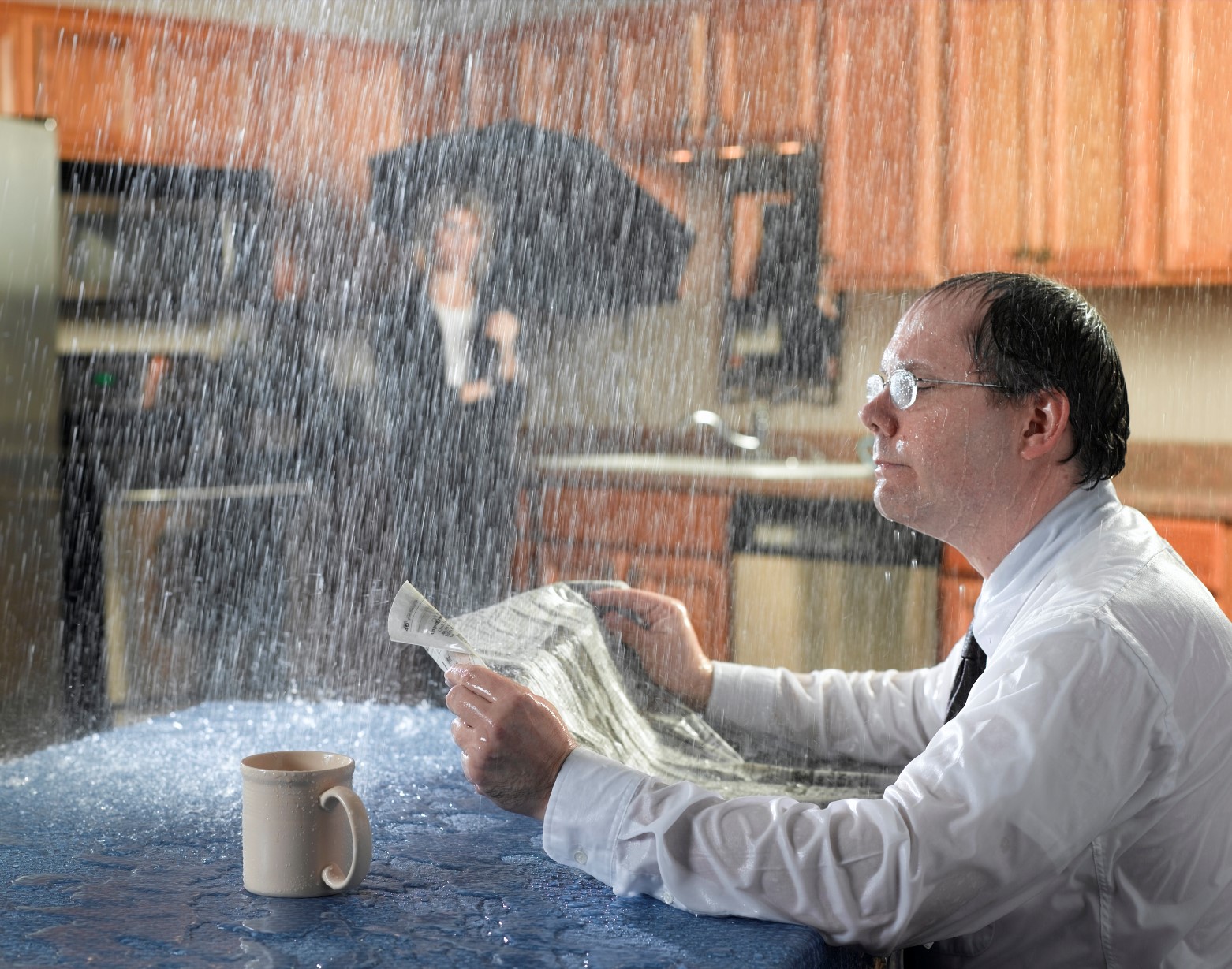Learn About the Six Principal Reasons For Water Leakage at Home
Learn About the Six Principal Reasons For Water Leakage at Home
Blog Article
Every person seems to have their private theory involving How to Find Water Leaks.

Leakages not only cause waste of water but can likewise create unnecessary damages to your home and also promote undesirable natural growth. By looking and understanding for day-to-day circumstances that trigger leakages, you can shield your home from future leaks and unnecessary damage.
Intruding origins
The majority of water leakages begin outside your house as opposed to inside it. If you see an abrupt reduction in water stress, say in your tap, take time to go out and also analyze your yard. You could see damp spots or sinkholes in your yard, which might suggest that tree roots are attacking water lines causing water to permeate out. You can have your plumber check for breach, specifically if you have trees or shrubs near your residential or commercial property.
Corroded water supply
As time passes by, your plumbing system ages and also rust such as corrosion may start eating away the pipes. This might be the root cause of discoloration or warping on your water pipes. This calls for an examination with your plumber instantly. Consider replacing the pipelines considering that they are at a higher risk of deterioration than the newer models if our plumbing system is old.
Faulty Pipeline Joints
The point at which your pipes attach is regularly the weakest web link in the waterline. Pipe joints can degrade with time, causing water leaks. Unfortunately, most of pipe joints are not quickly visible. If you have noisy pipelines that make ticking or banging sounds, specifically when the warm water is turned on, your pipeline joints are possibly under a great deal of pressure. It is a good idea to have your plumber check your system annually.
Instant temperature modifications.
Extreme temperature modifications in our pipes can create them to increase as well as acquire suddenly. This expansion as well as contraction may cause fractures in the pipes, particularly if the temperature are listed below cold.
Poor Water Connectors
At times, a leak can be triggered by loosened hoses as well as pipelines that supply your devices. In situation of a water links leakage, you may observe water running directly from the supply line or puddles around your devices.
Clogged Drains
Blocked drains pipes could be frustrating and inconveniencing, however they can in some cases wind up causing an overflow resulting in burst pipes. Keep getting rid of any type of materials that might go down your drains that might obstruct them to stay clear of such aggravations.
All the above are sources of leakages but not all water leakages arise from plumbing leaks; some leakages may come from roof covering leaks. All leakages must be fixed right away to stay clear of water damages.
Leakages not only cause waste of water but can also cause unnecessary damage to your house and advertise unwanted organic growth. By looking and understanding for daily situations that trigger leakages, you can safeguard your residence from future leakages and unnecessary damages. Today, we will look at 6 leak triggers that might be creating your pipelines to drip.
At times, a leakage can be created by loose hose pipes as well as pipes that supply your devices. In situation of a water links leak, you might observe water running directly from the supply line or puddles around your appliances.
How To Check For Water Leak In Your Home
How To Check for Leaks
The average household's leaks can account for nearly 10,000 gallons of water wasted every year and ten percent of homes have leaks that waste 90 gallons or more per day. Common types of leaks found in the home are worn toilet flappers, dripping faucets, and other leaking valves. These types of leaks are often easy to fix, requiring only a few tools and hardware that can pay for themselves in water savings. Fixing easily corrected household water leaks can save homeowners about 10 percent on their water bills.
To check for leaks in your home, you first need to determine whether you're wasting water and then identify the source of the leak. Here are some tips for finding leaks:
Take a look at your water usage during a colder month, such as January or February. If a family of four exceeds 12,000 gallons per month, there are serious leaks.
Check your water meter before and after a two-hour period when no water is being used. If the meter changes at all, you probably have a leak.
Identify toilet leaks by placing a drop of food coloring in the toilet tank. If any color shows up in the bowl after 10 minutes, you have a leak. (Be sure to flush immediately after the experiment to avoid staining the tank.)
Examine faucet gaskets and pipe fittings for any water on the outside of the pipe to check for surface leaks.
Undetected water leaks can happen without the home or business owner even realizing. If you suspect a water leak, but not able to find the source. It is time to contact a professional water leak detection service, The Leak Doctor.
How To Find a Water Leak In Your Home
https://www.leakdoctor.com/blog/How-To-Check-For-Water-Leak-In-Your-Home_AE197.html

I ran across that post about Most Common Causes of Leaky Pipes when scouting around the internet. Are you aware of someone else who is fascinated about the topic? Feel free to promote it. Thanks a bunch for your time. Please stop by our site back soon.
Immediate attention? Phone us! Report this page